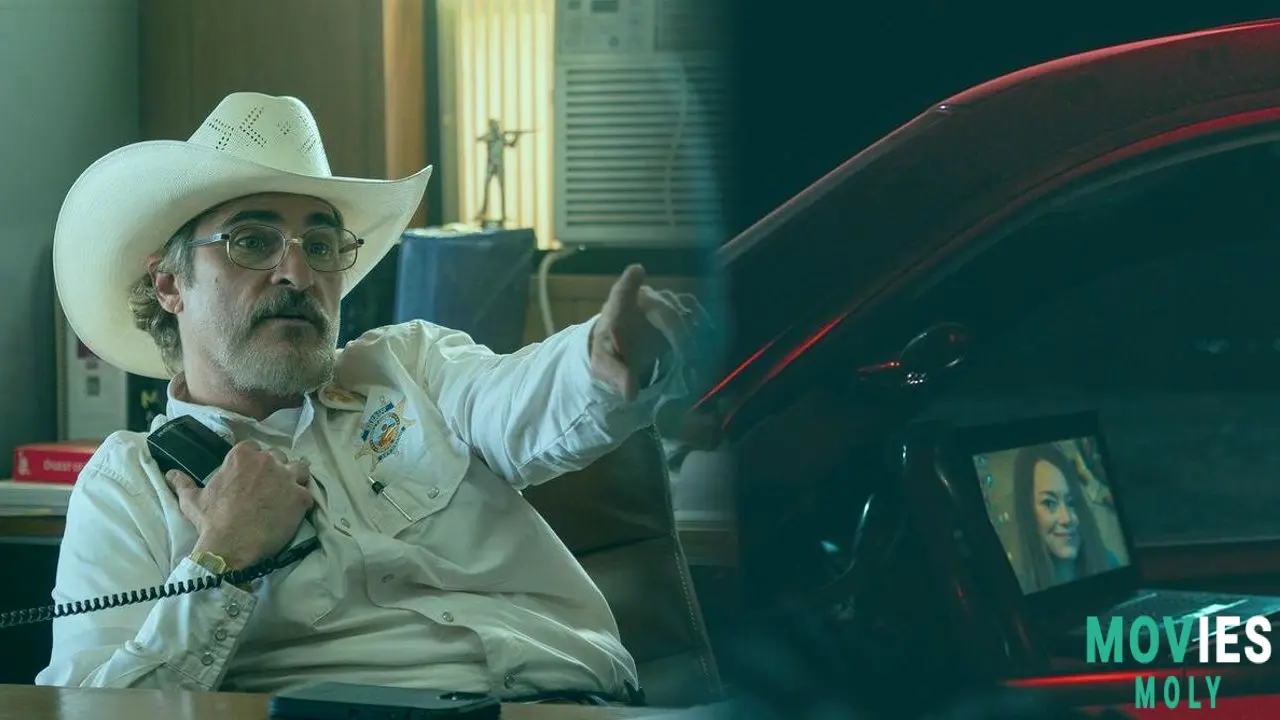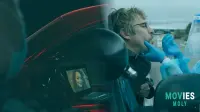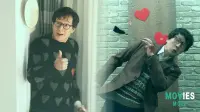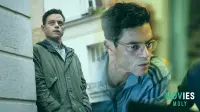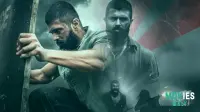Ari Aster, the director of scary movies like Hereditary, Midsommar, and Beau Is Afraid, is back with Eddington. This neo-Western thriller gives a keen, often disturbing look into the early days of the COVID-19 outbreak in a small hamlet in New Mexico. The movie immediately makes itself known as a polarizing piece of art, just as the social problems it shows. It looks at how false information, anxiety, and being alone online led to widespread paranoia and violence, showing a community that was having a hard time dealing with a reality that was becoming more and more screen-based.
Spoiler Alert: A Full Plot SummaryThe drama takes place in the made-up town of Eddington, New Mexico, in late May 2020. It is about Joe Cross (Joaquin Phoenix), the town's quiet and asthmatic sheriff. Joe has to deal with a town that is falling apart. Dawn (Deirdre O'Connell), Joe's mother-in-law, is obsessed with conspiracy theories and talks about them all the time with Joe and his wife, Louise (Emma Stone). Louise is becoming more and more interested in Vernon (Austin Butler), an internet influencer with a lot of followers.
Joe and the current mayor, Ted Garcia (Pedro Pascal), are in a heated fight for mayor. Ted wants masks and social separation to be required, but Joe thinks they should be up to each person. Joe uses the loudspeaker in his police car to play his campaign speeches, which makes the town even noisier and more chaotic. The movie highlights how digital identities can be very different from real life. Ted and his son Eric (Matt Gomez Hidaka) seem close in campaign advertising, but they have a hard time getting along in reality.
As the pandemic goes on, so does the proliferation of false information online. Joe and his deputies see a video of an attack on a police station and quickly grab their guns without checking the footage. After George Floyd was killed, civil unrest grew, and Black Lives Matter rallies came to Eddington. Teenagers like Sarah (Amélie Hoeferle) and Brian (Cameron Mann) get involved in talks about social justice, which often have a performance aspect. The tension rises, and violence breaks out throughout the community. Joe, who wanted to bring back communal values, ends up in a nightmare of his own creating, wondering what he did as violence breaks out.
The Neo-Western Setting: What New Mexico Does
It matters that New Mexico is the setting for Eddington. It gives the movie a Western look, but with a modern, digital edge. The brilliant desert landscapes and amber-lit sceneries set the stage for the growing tension, turning the small hamlet into a battleground for ideological battles. This backdrop helps create the "neo-Western" mood, when online arguments and real-life fights fueled by internet paranoia take the place of classic stand-offs.
Breaking Down the Themes: Political Divide, Pandemic, and Social Media
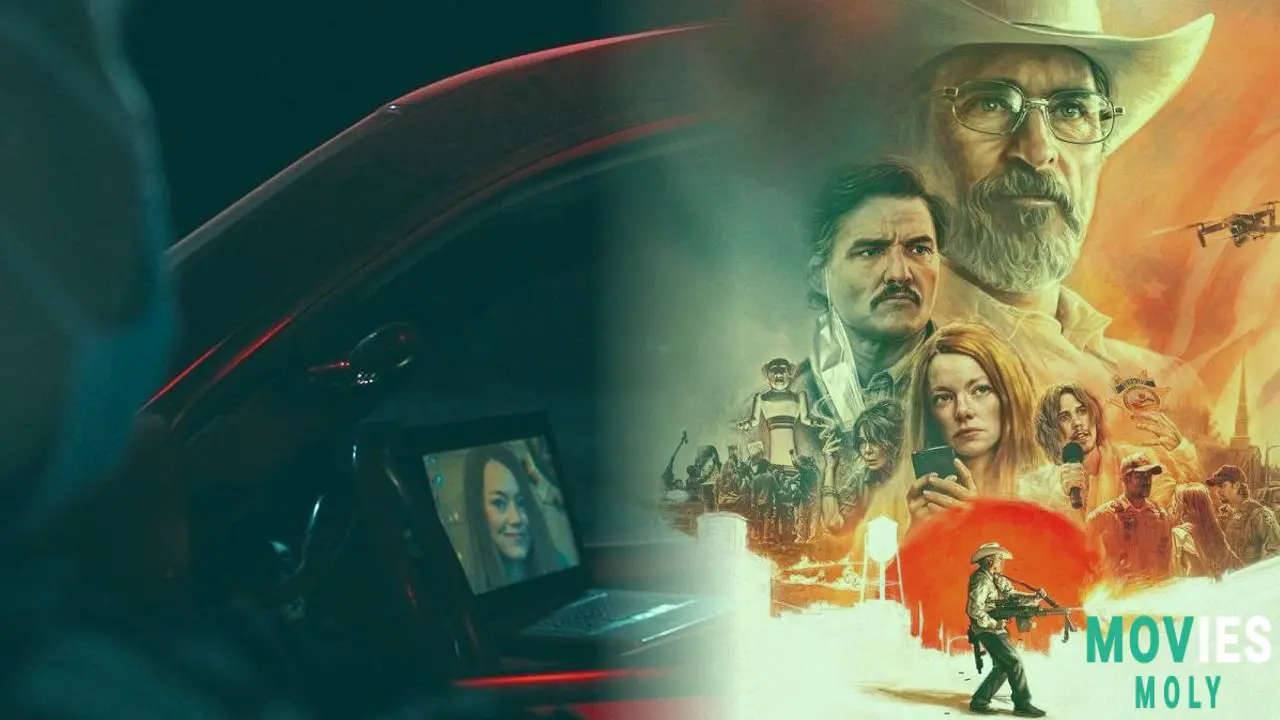
Eddington doesn't just talk about the COVID-19 epidemic; he also talks about the sickness that spread with it. The movie shows how the internet, which used to be a way for people to communicate, became a place where false information and division could grow. Characters are always glued to their screens, reading and responding to numerous updates and heated arguments.
Ari Aster's "Eddington" brilliantly shows what occurs when a community can't log off in the digital world of epidemic existence, according to @FilmAnalyst. This feeling is in line with the main point of the movie: the internet's widespread use changed how people saw the world, making them more cynical and causing more violence.
The Digital Reality: How the Internet Affects Us and Makes Us Paranoid
The movie shows a world where things that happen online affect real life. Joe's introduction through a phone screen, his mother-in-law's printed "news" pieces, and Louise's obsession with an influencer all indicate how what they saw and did online changed how they thought and acted. The video indicates that being online all the time might keep individuals in a loop of disorientation, where the attention moves from what is happening to layers of comments.
@TechCulture said on X, "'Eddington' is more than just a movie; it's a mirror that shows how broken our society is because of the internet." Anyone who is having trouble with modern life has to view this. The movie says that this digital overload didn't help people understand each other; instead, it made them more extreme and divided them.
Getting the 'Bothsidesism' Critique
Aster tries to present several points of view via the movie's "cacophony" of voices. He wanted to write characters that people could relate to, which made it impossible for others to guess what his own political views were. Some reviewers, on the other hand, say that the movie's approach leads to "bothsidesism," where it attacks both sides of the political spectrum without giving a clear message or deeper insight. The movie makes fun of the vanity of some white liberals and the paranoia of others, frequently by showing awkward, relatable scenes.
@CultureCritic said on X, "The discussion about 'Eddington' is just as divisive as the movie itself." Aster's anti-Western isn't hesitant to criticize everyone, which makes it a difficult but necessary watch. This shows that the movie can get people talking, even if people disagree on how neutral it is.
Meet the actors: Joaquin Phoenix, Pedro Pascal, Emma Stone, and more.
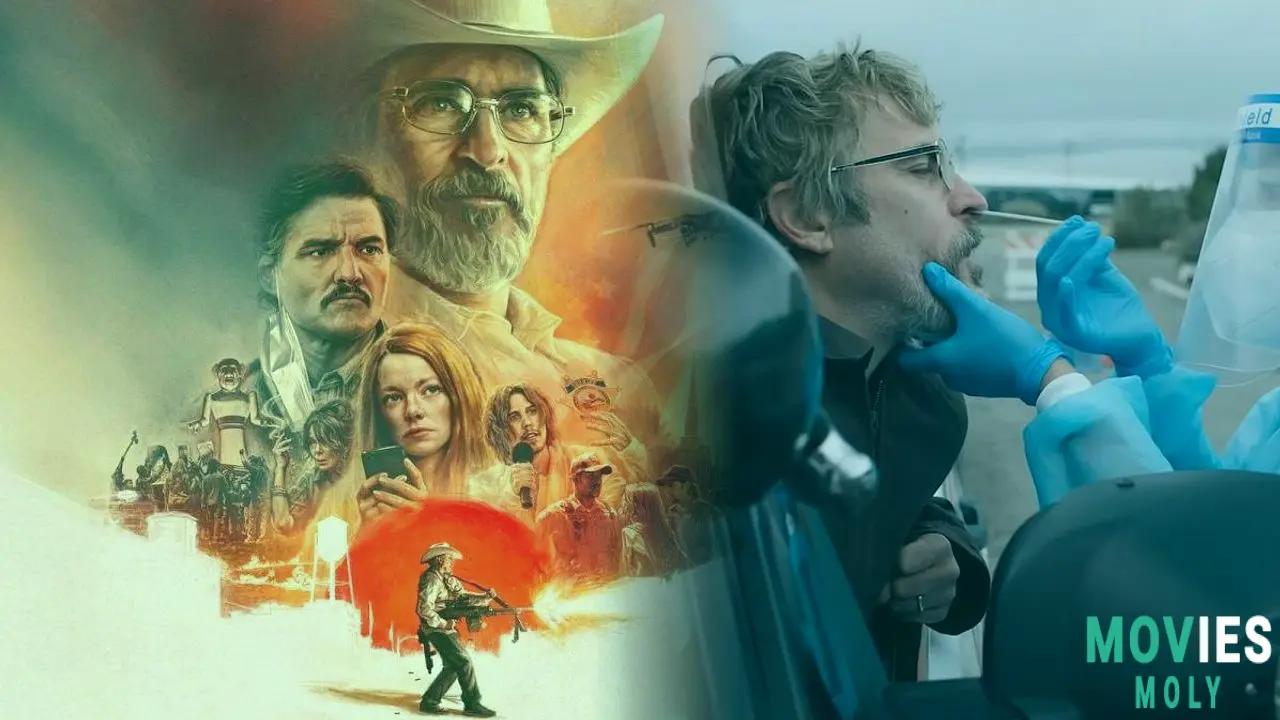
The movie has a great cast that brings Aster's vision to life. Joaquin Phoenix plays Joe Cross, a shy man who wants to look more confident online during the crisis. His portrayal shows how Joe's emotions fall apart as he gets stuck in a nightmare he made for himself.
Pedro Pascal plays Mayor Ted Garcia, the popular incumbent who disagrees with Joe about how to handle the pandemic. Emma Stone plays Louise, Joe's wife. Her distant conduct and online addictions make things harder for Joe. Austin Butler plays Vernon Peak, a well-known online guru. Deirdre O'Connell does a great job as Dawn, the mother-in-law who is obsessed with conspiracies. Michael Ward and William Belleau also play police policemen, Michael and Officer Butterfly Jimenez, in the movie.
Character Deep Dive: Joe Cross's Fall
The story of Joe Cross is very important to Eddington. He is in over his head, having trouble talking to his wife, and losing the election for mayor. The movie illustrates how he desperately tries to find meaning and dignity in the turmoil, but it ends up taking over his life. When violence breaks out, he screams, "Is this what I'm supposed to do?" This shows how hopeless he is and how empty his life has become.
"Joaquin Phoenix and Pedro Pascal give intense performances in 'Eddington,' a movie that ends with violence and makes you think about the pandemic," @CinemaBuff said on X. Phoenix's portrayal of Joe's downhill slide is a highlight, revealing a man whose good intentions lead to a bloody end.
Ari Aster's Vision: How He Directs and What He Wants
Eddington shows off Ari Aster's unique style of directing. Aster is good at establishing tension and probing psychological suffering. He uses these skills to write a modern social criticism. He shows how the online world invades the protagonists' lives by using visual signals like social media feeds flooding the screen.
Aster said he wanted to show people living in different realities that they can't reach each other, which makes them more convinced and paranoid. He thinks that the violence in the movie makes sense because people were so angry and hateful at the time.
How 'Eddington' Compares to Aster's Other Work
Hereditary and Midsommar are typically called horror movies, and Beau Is Afraid is often called a surreal psychoanalysis movie. Eddington, on the other hand, is more of a dark comedy and satire. But it still has Aster's trademark creepy mood and honest look at how people don't work. Like his other books, it looks at how relationships fall apart and how outside circumstances affect people's mental health. Some people could say it's his most cynical work, but it still accurately shows how people are feeling these days.
@HorrorFanatic asked on X, "Is 'Eddington' a horror movie?" Not directly, but Ari Aster makes the fear of living online very real. It's the most cynical work he's ever done, yet it's also strangely true. This shows how Aster can still make people feel scared, even without using typical horror themes.
Beyond the Screen: Behind-the-Scenes Information and Technical Genius
Darius Khondji's cinematography makes Eddington look great. His work helps the movie make the internet world seem like it's spilling over into the protagonists' real lives. The video is based on a real-life situation since it pays close attention to the minutiae of the pandemic, like QAnon-style stickers and cries for social separation.
The Score's Power: Music in "Eddington"
The Haxan Cloak and Daniel Pemberton wrote the film's score, which is a big part of what makes the movie so creepy. The music builds the tension and shows the fear that runs through Eddington. It adds to the feeling of being trapped and the impression that the world is going crazy, without taking away from the story being told through pictures.
How "Eddington" is Dividing Viewers: Critical Reception and Audience Debate
Since it came out, Eddington has caused a lot of controversy. Many people think it's a harsh, cynical, and true picture of recent events, especially the digital realities of life during the pandemic. Some others say it's too full, too scattered, or has "bothsidesism," and they say it doesn't have a meaningful message even though it has a lot of topics.
The fact that the movie can split spectators is similar to the splits it shows. Some people may not like watching it, but many people think it is an important piece of social commentary that makes them think about how society has changed. Aster himself thinks that the movie can be a "period piece" that makes people think about their past actions and think about a new way to move forward.
Comparing it to other movies about pandemics and social issuesEddington is one of many movies that deal with the COVID-19 outbreak and its effects on society. Aster's movie is different from others since it doesn't focus on the virus itself. Instead, it looks at the mental and social effects of being alone and getting the wrong information. It might be considered as a modern version of movies that look at people's fears in society, utilizing the year 2020 as a backdrop to talk about bigger themes like internet culture and political division. It stands out because of its mix of dark humor and strong drama, which gives a new look at a shared experience around the world.

